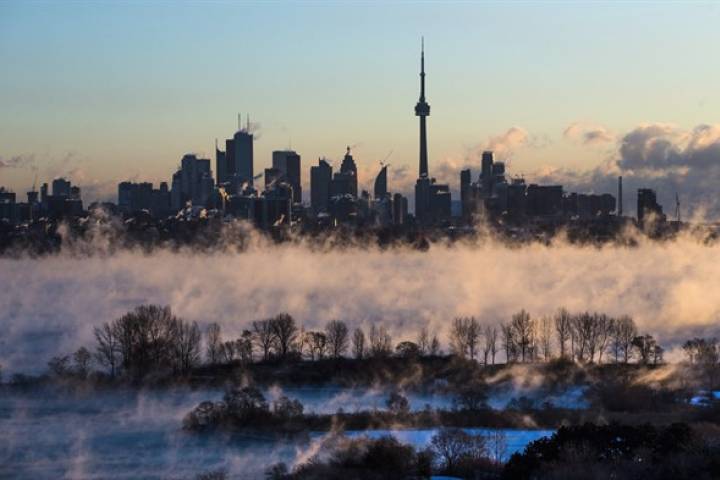Realosophy Team in Media Roundup, Toronto Real Estate News
All you need to know regarding the housing market in Toronto, Canada and abroad.
This week in Toronto: The housing bubble is very real, soaring prices trigger new warnings and population growth isn't driving house prices.
Elsewhere: Immigration from abroad and the rest of Canada adds to Ontario's housing crunch, a Portland start-up smashes barriers to affordable housing and renters find relief in Germany's priciest cities.
Toronto
Toronto housing called ‘bubble,’ as new listings fall rapidly (Toronto Star)
An unprecedented imbalance between the supply and the demand for Toronto-area homes is exerting a disproportionate impact on the national picture, according to the Canadian Real Estate Association (CREA).
Soaring home prices in Greater Toronto Area trigger new warnings (The Globe and Mail)
John Pasalis, president of brokerage Realosophy Realty Inc. in Toronto, is also sounding the alarm. “You need to be cautious if you’re buying now, and be careful what you’re spending because the market looks very heated and GTA prices are arguably going up too fast,” Mr. Pasalis said in an interview. “The problem with our prices has just as much to do with domestic speculators as foreign ones.”
BMO declares Toronto housing bubble amid ‘dangerously’ hot prices (BNN)
“Let’s drop the pretence. The Toronto housing market — and the many cities surrounding it — are in a housing bubble,” BMO Chief Economist Doug Porter wrote in a note to clients Tuesday.
Population growth isn’t driving Toronto house prices. So what is? (Macleans)
So what’s driving the market? Wild-eyed speculation, according to David Madani, an economist at Capital Economics and a noted housing bear. Madani released a report Friday saying that imbalances in the housing market are worsening, and could become a drag on the nation’s long-term growth. Investment in housing, which has supported the Canadian economy through recent tough patches, has reached and remains near record highs.
Canada
Immigration from abroad, rest of Canada adds to Ontario’s housing crunch (Global)
The affordability crisis in Toronto and surrounding regions stands in stark comparison with a 2.9 per cent year-over-year decrease for Calgary’s home prices and 1.0 per cent dip in Saskatoon. Regina, Ottawa, and Greater Montreal recorded unremarkable increases, roughly between 3 and 4 per cent. And with Vancouver prices continuing their gentle decline from their August peak, Victoria and Vancouver Island were the only areas outside Ontario to see strong growth.
Average Canadian house price barely increased in past 12 months (CBC)
"Canadian homebuyers face some challenges this year, including new mortgage rules that make it harder to qualify for a mortgage and regulatory changes that will push up mortgage financing costs," CREA president Cliff Iverson said in a release.
Relying on rising home prices could be a fool's strategy: Don Pittis (CBC)
But if averages mean anything, Canada as a whole has reached a turning point where, on average, one of the strongest justifications for paying more than you can really afford for a home has disappeared.
USA
A Portland Start-Up Is Smashing Barriers to Affordable Housing (City Lab)
Poole launched NoAppFee.com in beta in 2015. This version was targeted at the general housing market, not just affordable-housing seekers. Eight Portland-area management companies agreed to participate and provide their open units—at, above, and below market rates—and screening criteria to Poole and his team. They paid nothing to include their listings (about 80 at first); renters had to enter their Social Security number and date of birth and pay $35 for a credit and background check, refundable once they have paid the first month’s rent. In return, they’re matched with all vacancies that they qualify for, automatically.
Why Does It Cost So Much to Live in California? (NY Times)
The broader point — which isn’t remotely controversial — is that California cities have some of the most restrictive building laws in the nation, and this is a big reason why the state’s per capita home supply is 49th out of 50 states, and why it costs so much to live here.
Trump policies could threaten Pittsburgh's low-income housing efforts (Pittsburgh Post-Gazette)
“If we don’t continue these programs, we’re going to see a lot of displacement, a lot of gentrification and people being pushed out of their communities,” Mr. Acklin said. “Without those federal investments and tax credits, it would be catastrophic to plans like Mayor Peduto has to keep Pittsburgh affordable.”




